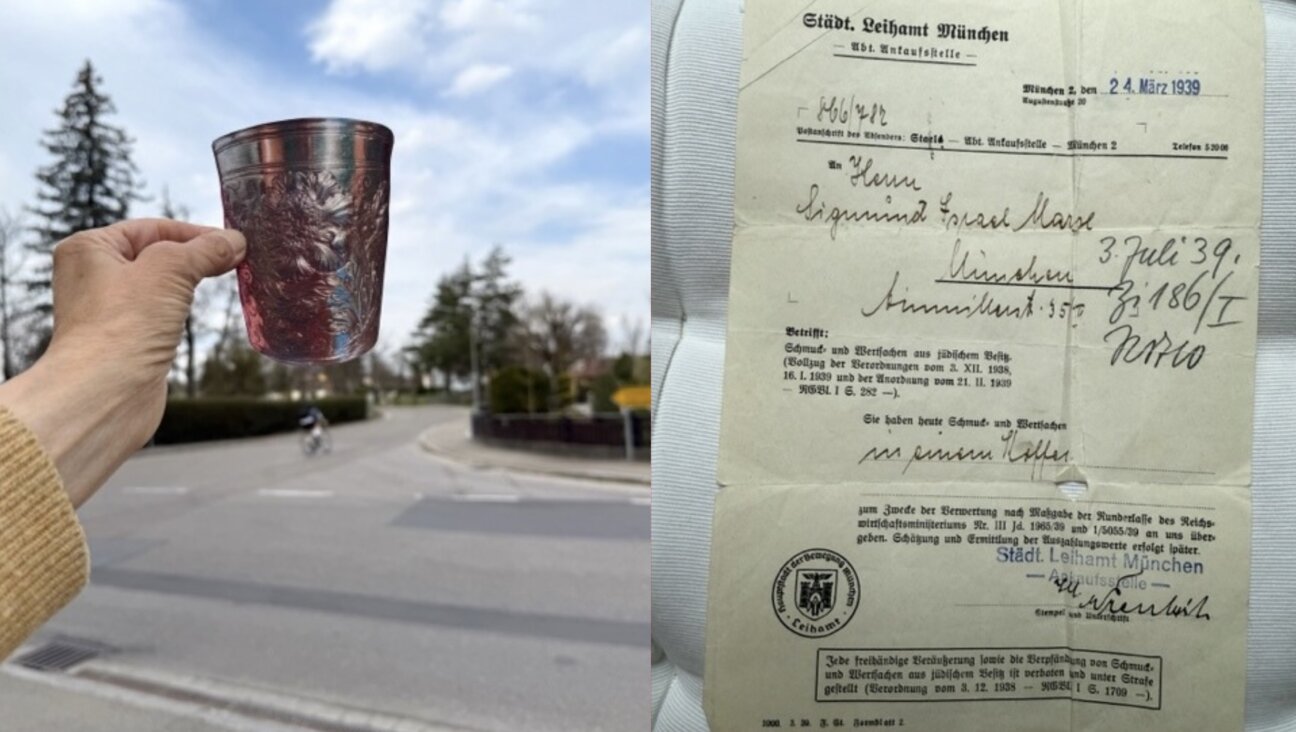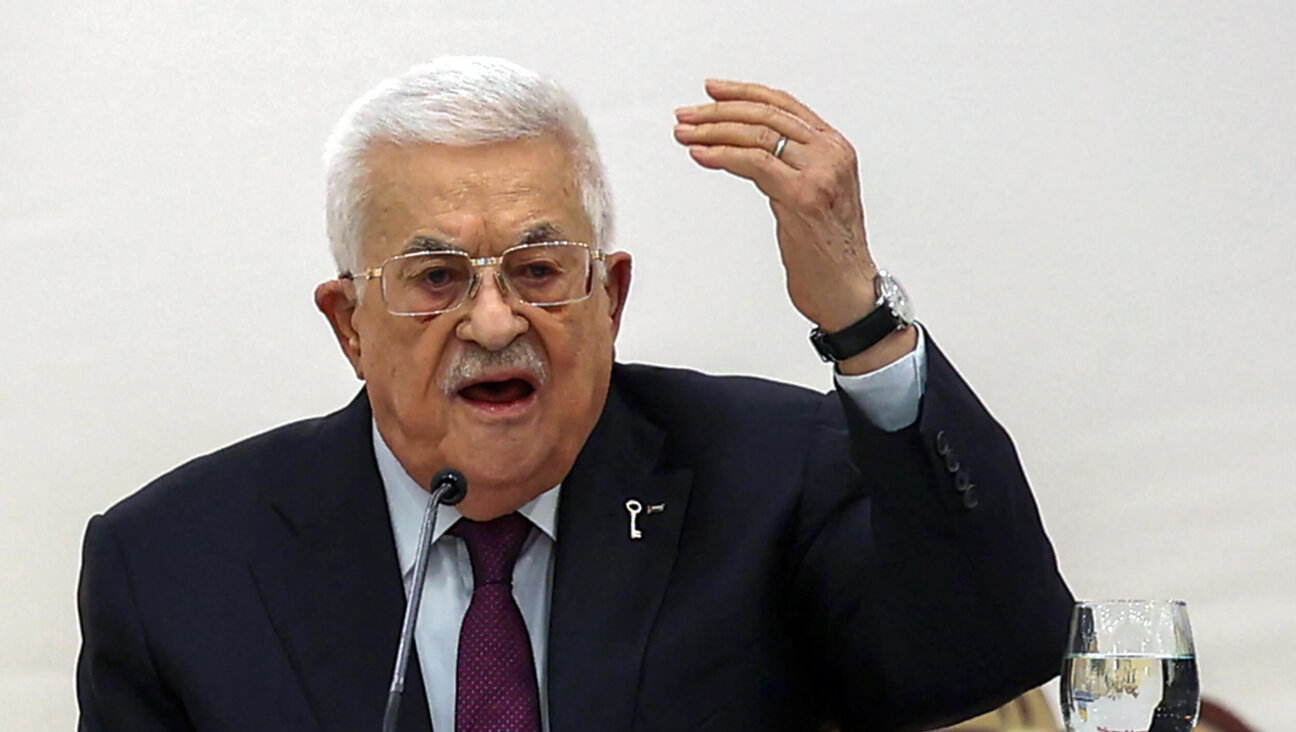Israel’s Hidden Crisis
Israel faces no end of threats and challenges, any one of which is capable of fueling endless discussion — not to mention anxiety — among Jews and gentiles around the globe. There is one challenge, however, that’s rarely discussed above a whisper outside Israel, because of its extreme sensitivity. You might call it the hidden Jewish demographic crisis: the population explosion among the Jewish state’s Haredi or ultra-Orthodox Jews, and the implications of that growth for Israel’s long-term survival.
Why should a growing level of piety be considered a national “challenge”? For one simple reason: Haredi men are almost entirely exempted from military service, in deference to their religious convictions. Under a rule enacted at the time of Israel’s founding, draft-age men are excused from serving if they are engaged in full-time Torah study at a recognized academy through age 40. The rule has the dual effect of removing yeshiva students from both the military and the work force. The more Haredim, experience shows, the fewer potential soldiers, and the fewer taxpayers.
When the exemption was first approved in 1948, it involved barely 400 men. Four decades later, in 1992, the Torah-study exemption was granted to 5% of that year’s conscription-age cohort of 18-year-olds. This year, 2007, the proportion reached 11%. In 2019, the exempted yeshiva students are projected to top 23% of the cohort, which is the proportion of Haredi students among this year’s first graders — the most straightforward predictor.
The figures are contained in reports issued in July by two Israeli government agencies. One, released by the army’s manpower division, simply states the proportions of conscripts and exemptees. According to the report, just under 24% of all 18-year-olds will be exempted from the draft this coming fall. Of those, 11% — close to half — will be excused because of Torah studies. The rest will be divided roughly evenly among Israelis living abroad, those with criminal records, medical deferments and those found “psychologically unfit” — by health or inclination — for military service.
Nonreligious exemptions have declined in recent years, but Torah exemptions have soared. The main reason is fertility: The Haredi community averages 7.6 children per woman, roughly triple the rate for the population as a whole, according to the Israel government’s Central Bureau of Statistics.
The demographic trend is demonstrated plainly in another report, prepared by the statistics bureau for the Ministry of Education. The report shows enrollment figures in Israel’s three separate Jewish school systems, the state-secular, state-religious (Modern Orthodox) and Haredi streams. In the 15 years from 1992 to 2007, the proportion of Jewish children attending state-secular elementary schools dropped to 55% of the total from 67%; in 2012 it is projected to fall to 51%. The percentage attending Haredi schools, meanwhile, went from 12.4% in 1992 to 26.7% in 2007 and a projected 31% in 2012. Modern Orthodox schools (whose graduates do perform military service) remain steady throughout at roughly 18%.
At some point in the late 2020s, if current trends continue, the percentage of Israeli Jews claiming army exemption due to Torah study will pass the 30% mark and continue climbing.
These figures don’t include the schools of Israel’s Arab community, which is almost entirely exempt from military service. The Israeli Arab birthrate is climbing, as well, although nowhere near the pace of Haredi increase.
Factoring in the Arab schools, Israel’s elementary-school population in 2012 will look like this: 41.7% state-secular, 13.5% state-religious, 17.4% Haredi and 27.4% Arab. Unless something changes drastically, Israel’s military draft pool will fall below 50% of draft-age youth by the year 2030 or soon after.
One can only pray that Israel reaches stable peace with its neighbors before it runs out of draftees.
But even peace will not solve the problem of Haredi men removed from the work force by their prolonged yeshiva studies. At present, just 30% of Haredi men participate in the work force. Almost half the Haredi population lives below the official poverty line. As the Haredi share of the population grows, pressure will mount on the tax rolls, the welfare system and inter-communal tolerance and civility.
Attempts have been made to integrate the Haredi community into essential aspects of Israeli society, but with little effect. A special Haredi unit of the army was created, shielded from contact with women soldiers and enriched with Torah study. So far it has drawn only a few hundred men. Most of them, ironically, are not Haredim but settlers, Modern Orthodox Jews who would serve in the army anyway, but prefer the stricter religious milieu of the “Haredi” units.
Efforts have also been made to amend the draft laws so that young Haredi men can hold jobs. The latest was floated in late July by Israel’s Finance Ministry. Past efforts have met fierce resistance from Haredi rabbis, who view Torah study as sublime and employment as a distraction. Ideally, the solution can be found through mutual compromise. Unfortunately, most of the compromising will have to come from the Haredi leadership, a group known for its uncompromising views in matters of faith.
The debate turns familiar categories of Jewish loyalty on their heads. We’re not accustomed, especially in the Diaspora, to the idea that those Jews who are most devoted to Judaism might constitute a threat to the Jewish future. The hidden demographic crisis is a wakeup call to all sides.
The Forward is free to read, but it isn’t free to produce

I hope you appreciated this article. Before you go, I’d like to ask you to please support the Forward.
Now more than ever, American Jews need independent news they can trust, with reporting driven by truth, not ideology. We serve you, not any ideological agenda.
At a time when other newsrooms are closing or cutting back, the Forward has removed its paywall and invested additional resources to report on the ground from Israel and around the U.S. on the impact of the war, rising antisemitism and polarized discourse.
This is a great time to support independent Jewish journalism you rely on. Make a gift today!
— Rachel Fishman Feddersen, Publisher and CEO
Support our mission to tell the Jewish story fully and fairly.
Most Popular
- 1

Opinion The dangerous Nazi legend behind Trump’s ruthless grab for power
- 2

Opinion A Holocaust perpetrator was just celebrated on US soil. I think I know why no one objected.
- 3

Culture Did this Jewish literary titan have the right idea about Harry Potter and J.K. Rowling after all?
- 4

Opinion I first met Netanyahu in 1988. Here’s how he became the most destructive leader in Israel’s history.
In Case You Missed It
-

Culture In Germany, a Jewish family is reunited with a treasured family object — but also a sense of exile
-

Opinion Trump’s hasty approach to an Iran deal could be a big problem for Israel
-

Fast Forward In NYC, Itamar Ben-Gvir says he’s changed — and wants ‘the Trump plan’ in Gaza
-

Opinion Itamar Ben-Gvir’s visit to a Jewish society at Yale exposed deep rifts between US Jews
-
Shop the Forward Store
100% of profits support our journalism
Republish This Story
Please read before republishing
We’re happy to make this story available to republish for free, unless it originated with JTA, Haaretz or another publication (as indicated on the article) and as long as you follow our guidelines.
You must comply with the following:
- Credit the Forward
- Retain our pixel
- Preserve our canonical link in Google search
- Add a noindex tag in Google search
See our full guidelines for more information, and this guide for detail about canonical URLs.
To republish, copy the HTML by clicking on the yellow button to the right; it includes our tracking pixel, all paragraph styles and hyperlinks, the author byline and credit to the Forward. It does not include images; to avoid copyright violations, you must add them manually, following our guidelines. Please email us at [email protected], subject line “republish,” with any questions or to let us know what stories you’re picking up.












